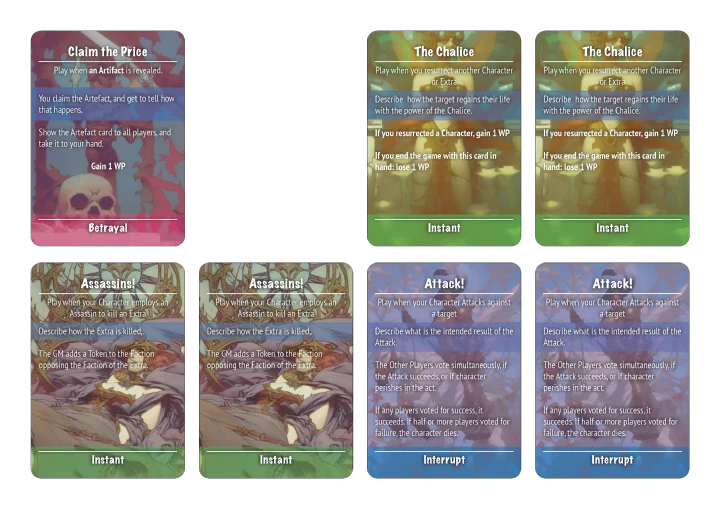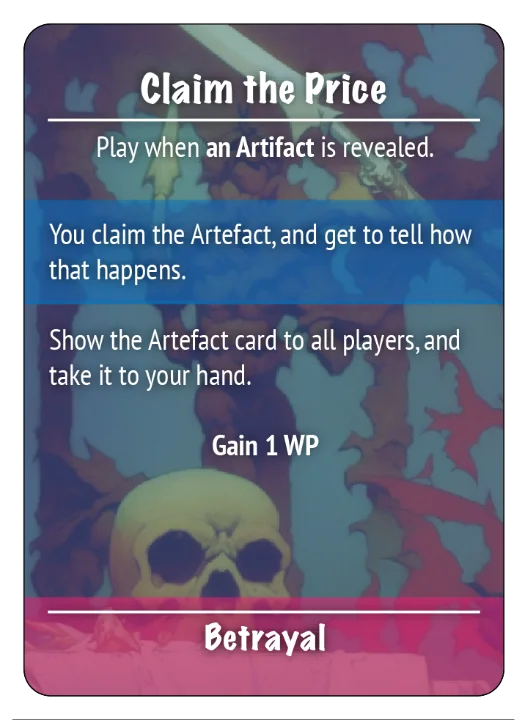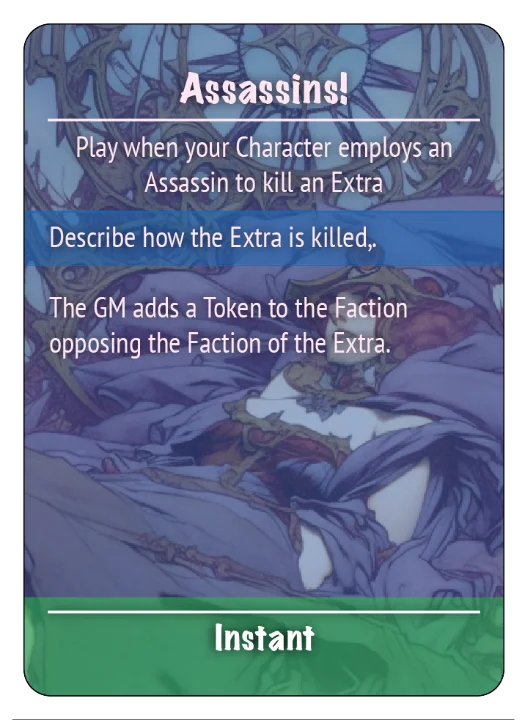The Dark Prophecy
An introduction
The Dark Prophecy is an experimental concept for a role-playing game with a win-state. The win-state idea was originally proposed by Jukka Sorsa in AlphaCon 2017 as a part of his program item on (euro-) boardgame tech for tabletop RPG's.
The concept is written as a "move based game", and it's rules are heavily inspired by the works of Vincent and Meguey Baker and the rest of the Powerder by the Apocalypse community.
This is a different kind of a role-playing game. Yes, you get to role-play. But you also get to lose. Except if you win.
Playing the game
You are part of a Cabal, trying to fulfill the Dark Prophecy. And you believe you are the only one who knows what the prophecy actually is about. Your colleagues are just unwitting pawns. Or is it the other way around?
PLAY ALONG
For the most part, the gameplay is a conversation about what the characters (played by their players) say, and do in the game fiction, and how the world (played by the GM) or other characters (played by their players) react to what was said or done. Your character opens the secret door to a laboratory, and the laboratory door indeed opens. Your character says an insult to another player's character, and that player tells you how their character reacts to that.
You are building a story together, and it is important that you stay on the same page with what's happening. So when having the conversation that is the game, you sometimes need clarifications.
It is always ok to ask "How?" when someone in the game does something. If your character is wants to open a secret door, it's a valid question for the GM to ask you how they find the way to open the door? If the explanation satisfies everyone, the play continues. If not, you figure out a solution that everyone can agree on by talking it out. Be ready that sometimes you have to accept that it is not possible for your character to open a locked high-security vault if they have no tools or training in it. If the conversation ends up going nowhere, the GM has the final say as an arbiter.
The exception to this practice is when something in the game triggers a Move. Together the two form the core principle of playing The Dark Prophecy: Play along or make a Move.
OR MAKE A MOVE
Sometimes – you want to alter the direction of the game. Or change how a situation plays out. Moves are small rules, that let you do excactly that.
Each Move comes with a trigger, that tells you when the move can, and should be played. Should this tigger happen in the fiction, you can instantly call out the Move and play it by following the rules written in it.
The Move's are played from the 3 cards a player has in hand. When you play a Move, you place the move to the (shared) discard pile, and draw cards from the deck to fill up your hand to to three cards.
Some Moves have special rules, as stated below.
The Moves
The Instants (Acts?)
These are your basic moves
The Interrupts (Cuts?)
Playing an interrupt move, can cancel or revoke effects of another move
The Artefact(s) (Discoveries?)
Should you draw the Artefact Move (there is only one at the time, in the deck), your character recovers the Artefact. And the card is placed in the center of the table.
Once a character manages to Recover the Artefact in fiction – the player takes the card and places it to their play are. The player controlling the Artefact can play the move in the card like it would be in their hand.
Recovering the 4th Artefact begins the End Game (the final scene of the game).
---- 0.3.0 DRAFT ENDS HERE ----
Misc stuff not yet incorporated to 0.3.0

| Claim the Price | Betray | Other |
|---|---|---|
 |
 |
 |
